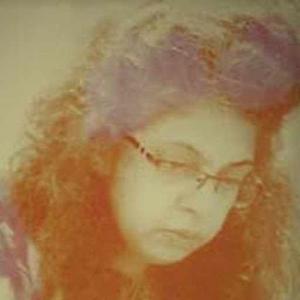

Rituparna Ray Chaudhuri is an educationist who teaches English and British Literature. She is also an author, a Google Scholar, essayist and literary critic, her work having been published by many internationally acclaimed websites. She has recently come out with the book Illusion Verses Reality: Based on Reverie, A Collection of Poems for ISC, which is a book of poetry and its analysis.
I chat with her about her book Illusion Verses Reality, how the book came to be, book recommendations, and much more.
Hello! Tell us a bit about yourself!
I was born and brought up in south Calcutta, and my growing up years were very much influenced by Literature and History studies. I studied in Gokhale Memorial Girls’ School and Presidency College, Calcutta. I am an analyst on philosophy and history of English Literature, a teacher of British Literature, and an author.
When did you start writing poetry? Which poets have been your inspirations?
I started to engage myself into writing poems very recently. I am greatly inspired by poets like Maya Angelou, Percy Bysshe Shelley, and Alfred, Lord Tennyson.
If you could only describe your poetry book Illusion Verses Reality: Based on Reverie, A Collection of Poems for ISC in one sentence, what would it be?
This is an academic book which is analytical, communicative, and has descriptions on structural framework of the included poems.
Now tell us a little more about the book! What can readers expect?
This book is based on quotations, and is compiled based on self-analysis, to help readers develop a philosophical and socialistic answer to contextual questions on both Indian and Western Literature, which are included in the ISC book Reverie.
It can be said that in this book, the acrostic poems in the book Reverie: A Collection of ISC Poems have been analysed from her own perception by the author.
What inspired you to write this book?
From students of higher classes and learners, I received feedback that they find it difficult to do a proper mapping of how to develop and write perspective answers, which also include their self views and thoughts. Most of the books in the market based on Reverie: A Collection of ISC Poems are workbooks for examination purposes. This compelled me to write this book, but in a different way, and this is indicated in the subtitle of the book – ‘In a time of destruction, create something’.
Tell us about some of the poems that you have discussed in this book.
This book analyses a unique collection of deep and meaningful poems. Robert Frost’s ‘Birches’ tells about his vision of a boy who’s swinging a birch tree. Mathew Arnold’s ‘Dover Beach’ shows that the land is a symbol of continuity whereas the sea is a symbol of change. In Thomas Hardy’s poem ‘The Darkling Thrush’, the poet reflects on the end of the 19th century and the state of Western civilization, while the thrush is a symbol for optimism. Lord Tennyson’s ‘Crossing the Bar’ denotes the divide between the physical world and the afterlife. These and many other poems are analysed in the book Illusion Verses Reality: Based on Reverie.
How have you been coping with the current pandemic and what will be the new normal for you post it?
I have been coping with the current pandemic by being busy with online teaching and learning, preparing myself to write my next book, and reading some of my favourite novels. In the new normal, I hope to lead a more socially restricted life, and be cautious and more disciplined.
Lastly, are you currently reading anything and do you have any book recommendations for our readers?
I am presently reading Mary Shelley’s Frankenstein. I would like to recommend the book The Making of a Story: A Norton Guide to Creative Writing by Alice LaPlante.
The book ‘Illusion Verses Reality’ is available online and at your nearest bookstore.









Write a comment ...